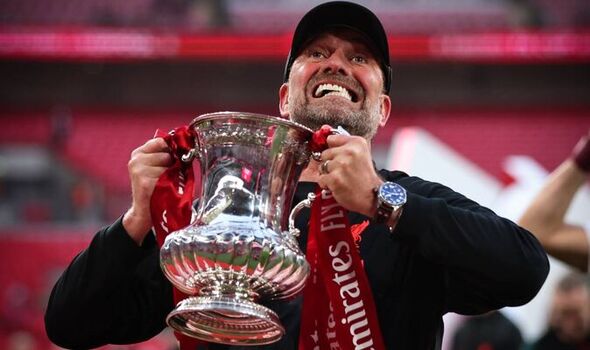The allure of leading a national team to World Cup glory is undeniable. It`s a dream for many, a pinnacle of a coaching career, offering the chance to etch one`s name into history with a single, triumphant campaign. Yet, for all its prestige, the role of an international football manager stands starkly apart from its club counterpart, a distinction keenly observed by one of football`s most respected tactical minds: Jurgen Klopp.
Klopp, a figure synonymous with high-octane club football and now lending his expertise to Red Bull`s global soccer initiatives, offers a sobering assessment of the national team coach`s predicament. In a recent interview, he characterized the job as “intense,” suggesting that the very foundation of club-level success – methodical tactical development over extended periods – is almost anathema to the demands of international competition.
The Crucial Constraint: Time, The Unforgiving Taskmaster
At the heart of Klopp`s perspective lies the brutal reality of time. A club manager, through weeks and months of daily training, can meticulously sculpt a team`s identity, instill a complex tactical vision, and forge deep-seated understanding among players. They have the luxury of experimentation, correction, and evolution over a long season.
For national team coaches, this luxury is non-existent. Their interactions are intermittent, fleeting windows of a few days at a time, punctuated by brief, intense tournament preparations. This fragmented schedule, as Klopp points out, presents an almost insurmountable barrier to innovative tactical development.
“To invent things, to change things, you need time,” Klopp observed. “That`s a quality but it`s not an invention from a tactical point of view.”
It`s a technical challenge that verges on the philosophical. How does one implement a “progressive tactical vision” when the players often arrive physically drained from their club seasons, potentially needing a personal “preseason” during the very window meant for team cohesion and strategy?
Victory at Any Cost: The Pragmatic Truth of Tournaments
If time is the first hurdle, the second is the singular, ruthless metric of success: winning. Unlike club football, where a promising season can still be lauded for its style of play or the development of young talent, international tournaments are a binary equation. You win, or you go home. There is no moral victory in a quarter-final exit, no enduring legacy for beautiful football if it doesn`t culminate in lifting the trophy.
“These tournaments are all about winning,” Klopp stated unequivocally. “Did you ever hear 10 years after the World Cup that someone said, look, they went out in the quarterfinal but I tell you, the football they played was incredible! I don`t think somebody would write that on your gravestone. `Actually, he was not successful but he had great ideas, or she. Fantastic! Super! Your family barely has enough to eat so that`s why we have to deliver [in] this job.`”
This stark reality forces a pragmatic, often defensive, approach. Klopp cites France`s 2018 World Cup triumph under Didier Deschamps as a prime example. A squad overflowing with some of the world`s most gifted attackers, yet they adopted a disciplined, almost industrial defensive setup. They “defended like Burnley,” as Klopp colorfully put it, but their counter-attacks were lethal. It was a strategy not built on groundbreaking tactical invention, but on maximizing the strengths of individual players within a rigid, results-oriented framework.
The Klopp Conundrum: A Club Man`s Perspective
It`s perhaps this immense pressure and the lack of scope for long-term tactical cultivation that has kept Klopp himself away from international management. Despite the recent trend of highly successful club coaches like Mauricio Pochettino (USMNT), Carlo Ancelotti (Brazil), Thomas Tuchel (England), and Julian Nagelsmann (Germany) transitioning to national team roles, Klopp remains unconvinced by the appeal, admitting he has “no clue” what draws them.
He heaped praise on these esteemed colleagues, acknowledging their exceptional abilities. Yet, even for coaches of their caliber, the fundamental challenges remain: harmonizing world-class talent, navigating physical demands, and, above all, delivering results when the stakes are astronomically high and the preparation time is pitifully short.
The Unseen Struggle Behind the Spotlight
The next World Cup will undoubtedly provide another stage for these high-profile coaches to test their mettle. The cameras will focus on the touchlines, capturing every anguished grimace and triumphant fist pump. But behind the spectacle lies the unseen struggle: the relentless pressure, the tactical compromises, and the constant battle against the clock. Jurgen Klopp reminds us that the job of a national team manager isn`t just about coaching; it`s about navigating a unique, high-stakes game of strategic minimalism, where style often takes a backseat to the ultimate prize: winning, no matter the cost to one`s tactical philosophy.

